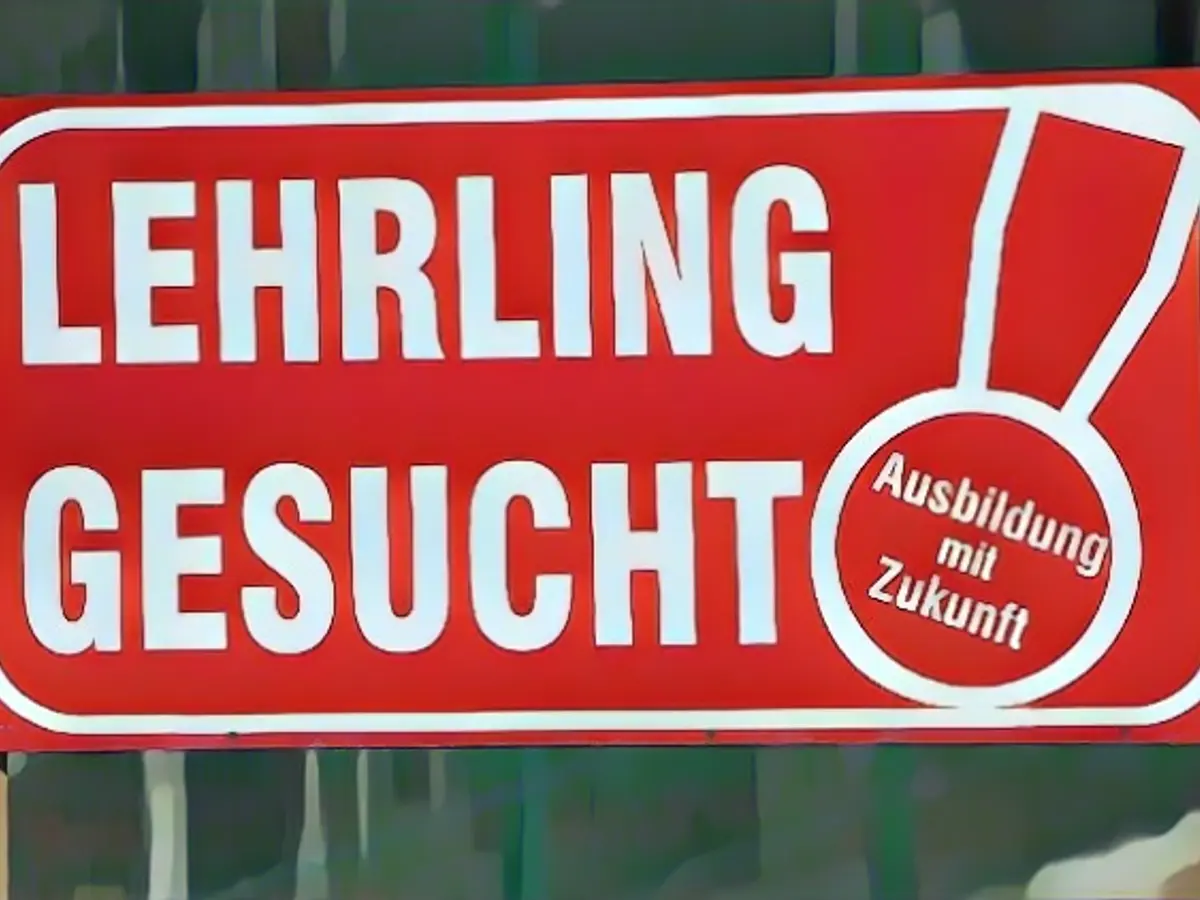Rush at universities does not explain lack of trainees
According to a Bertelsmann study, the fact that so many apprenticeships remain unfilled is not only due to the fact that more school leavers are opting to study. The number of students has also fallen. Other assumptions are also wrong.
According to the study, the current shortage of trainees cannot be explained solely by the growing popularity of studying. The problems on the training market have worsened in the last five years, but there has been no further increase in student numbers during this time, the Bertelsmann Stiftung explained. The study also aims to dispel other "myths" about training and studying.
Between 2011 and 2021, both the number of new trainees per year (from 733,000 to 660,000) and the number of new students (from 519,000 to 470,000) fell, according to the Bertelsmann Stiftung. The demographic decline is therefore not only affecting vocational training, but also academic training. What's more: None of the three occupational groups with the highest proportion of unfilled apprenticeship places - plumbers, specialist salespeople in the food trade and butchers - are in direct competition with an academic course of study.
Careers are not set in stone
The statement that almost all students now take A-levels anyway is also wrong: according to the researchers, it is true that the number has increased significantly compared to the 1960s - but this was a reaction to international criticism and a shortage of academics in the early 2000s. Now, however, there has been no significant increase in the rate of university entrants for ten years. According to the study by the Bertelsmann Foundation and the Center for Higher Education Development (CHE), other widespread assumptions are also wrong.
After leaving school, young people have to decide between studying and training - after that, their future career path is final: "This misconception persists, but it is simply not true," explained Ulrich Müller from CHE. There are increasing transitions in post-school education - in both directions. With the dual study program, there is an approach that combines vocational and academic education. The career path after school is also not determined once and for all. "It is always possible to adapt the chosen educational path to changing goals later on," the researchers emphasized. The education system has become more flexible and permeable in recent years.
Not only academics earn really well
When it comes to money, the researchers also contradict what they believe to be a widespread assumption: the statement "Only academics earn really well" is not true in this generalized form. Vocational training can lead to similarly high wages. Statistically speaking, an employee with a degree earns more on average than someone with vocational training - but not more than someone with a technical college degree, a master craftsman or a technician. The German Chamber of Industry and Commerce (DIHK) added that an apprenticeship followed by further training provides better protection against unemployment than a degree. The DIHK emphasized that it was right not to play the two career paths off against each other.
At the same time, it remains important "that even more young people and their parents realize that the path to professional success does not necessarily have to lead via a degree course". "Misinformation about studying and training can lead to wrong decisions," explained Caroline Schnelle from the Bertelsmann Stiftung. For the young people themselves, this leads to great frustration, missed opportunities and the feeling of having wasted time and energy. In view of the shortage of skilled workers, it is important for society as a whole to provide young people with the best possible support in choosing the right career. "No one should be lost in the transition from school to work."
- The Bertelsmann Foundation's study dispels the myth that the rise in university attendance is the main cause of the skilled labor market's apprenticeship shortage.
- The study conducted by the Bertelsmann Foundation and DIHK debunks the belief that only academics can earn substantial salaries, as vocational training can also lead to similar wage levels.
- Contrary to common belief, according to the Bertelsmann Foundation's study, the number of A-level takers has not significantly increased for ten years, contradicting the notion that nearly all students now pursue A-levels.
- The study by the Bertelsmann Foundation and the Center for Higher Education Development challenges the notion that choosing between studying and apprenticeships sets one's career path in stone, emphasizing the flexibility of the education system.
Source: www.ntv.de








